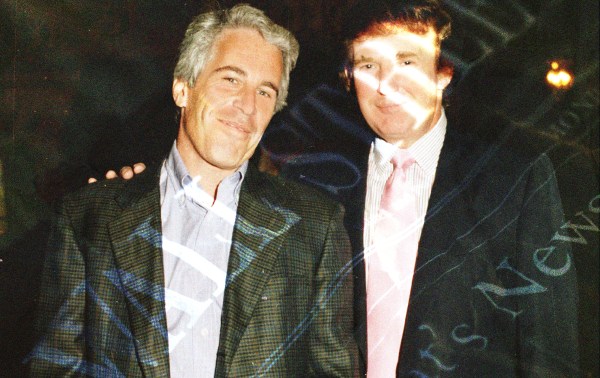I am an admirer of Audie Murphy, the celebrated yet troubled hero who was the most decorated U.S. soldier of World War II but struggled with mental illness and addiction for the rest of his relatively short life before dying at the age of 45. Murphy was something of a real-life Captain America—he lied about his age in order to serve and was rejected by all three (at the time) branches of the military for being too small to fight before the Army relented and allowed him to enlist. Murphy, who killed easily and well, was made for the kind of service his country required of him at the time, and he took the lives of at least 241 men in his fighting days. In one famous engagement, he stood for an hour atop a burning vehicle—while wounded—and fired at advancing Germans until he ran out of ammunition. He shot at least 50 men that day. After the war, he acted in movies (he played himself in a film based on his memoir, To Hell and Back, and appeared in a bunch of Westerns) and drank and took pills and wrecked a marriage and got into fights and got arrested and gambled his money away. He died in a plane crash at age 45.
He was a hell of a soldier, by all accounts.
Nobody ever thought he should be secretary of defense.
Pete Hegseth is something of a soft echo of Audie Murphy—an Ivy League version for our wan times. Like Murphy, Hegseth served honorably in combat (you will have heard that he was awarded two Bronze Stars), went into the entertainment business (his last job was as one of the hosts of Fox & Friends Weekend), took up drinking, wrecked some marriages (he is on his third), etc. He is today one year younger than Murphy was when he died.
Hegseth has an excellent general education, having done his undergraduate degree at Princeton and his master’s in public policy at Harvard. Harvard’s MPP program will graduate almost 700 students in its next class, and those are the only 700 people in the world who think any of them ought to be the next secretary of defense. There isn’t anything wrong with Hegseth’s education or his military service, but neither is there anything about either that is particularly relevant to the position for which he is to be nominated: He is not seeking to serve as an infantry platoon leader, which is what he was, or a think-tanker, or a McKinsey consultant, but the lead manager of one of the largest bureaucracies of any kind in the world.
There isn’t anything terrible about being a television personality. But what else has he done? He ran a veterans’-interest group, badly, and oversaw a PAC that spent much of its money on Christmas parties for his friends and family. He worked very briefly at Bear Stearns as an analyst. Mainly, he has worked in entertainment, most notably as the host of a Fox News morning show. There is very little that Fox News does that could be called “journalism,” but, to the extent that Fox News has done serious journalistic coverage of military and DoD affairs, Hegseth had nothing to do with it. He was the clown riding tricycles and mechanical bulls on Fox’s answer to Good Morning America. Again, there isn’t anything necessarily wrong with that, but Hegseth’s time at Fox News did nothing to prepare him to lead the Defense Department—he is better prepared to work in a circus. Like Audie Murphy, he could play a very convincing soldier in the movies.
The question isn’t just what, if anything, is wrong with Pete Hegseth–it is what, if anything, is right about him–in the context of being secretary of defense.
Hegseth is not an idiot. And he certainly could have gone into the sort of career that would have prepared him to serve as secretary of defense—but he did not do that. He made different choices. He preferred Princeton to West Point and the entertainment business to the policy business or a continued military career. Again, there isn’t anything wicked about any of that. There just isn’t anything in it to recommend him for the position to which he is to be nominated.
There is much that is troubling in Hegseth’s personal life, and “Oh, well, that business with the married woman in the hotel wasn’t actually rape” is not a good enough answer for all of it—but, set that aside for the moment. There is no need to speculate about what isn’t on the record when what is on the record is easy enough to see. And what it amounts to is: not much.
Being secretary of defense is not like being a television host or even a military-focused television pundit. It is, in terms of budget, responsibilities, and personnel, a lot more like being the chancellor of Germany. The DoD is the largest employer in the United States; it is one of the largest organizations of any kind in the world; its budget allocation, which runs the better part of a trillion dollars, actually understates the total financial resources committed to national defense, which is more like $2 trillion, roughly the size of the German, Japanese, or French national government budgets, with only the U.S. government itself and the Chinese government budget being much larger; in FY2023, DoD reported $3.8 trillion in assets and $4 trillion in liabilities; DoD has nearly 3 million employees, more than 2 million in uniform and nearly 1 million civilians; the Navy has more than 300 ships to keep up with and more than 4,000 aircraft; the Army has nearly 50,000 combat vehicles on its maintenance roster; the Air Force has more than 6,300 aircraft to keep up with and nearly 400 ICBMs. The managerial challenges of running that organization are immensely complex.
If you read through the U.S. National Defense Strategy documents, you won’t see very much about infantry maneuvers, but you will see a good deal about different approaches to financial management. “Audit remediation is one of the major components of the National Defense Strategy’s line of effort focused on reforming our business processes,” reads one document. Now, go look at that video of Pete Hegseth riding around on the tricycle and tell me that—stone-cold sober or blackout drunk—he is the man to undertake that apparently critical audit-remediation work.
He isn’t.
A man can be a good soldier and a poor choice for secretary of defense. There is a reason those who have been successful in the role of secretary of defense have tended to have long histories in adjacent roles and senior leadership positions in business, government, and universities. Consider the CVs of Robert Gates or William Perry vs. Hegseth’s, whose work history has more in common with William Perry the football player and entertainer than William Perry the secretary of defense. Robert McNamara had a long career between Harvard Business School and the Pentagon, but he wasn’t grilling bratwurst on the morning show—he was the president of Ford Motors. Hegseth might have stayed on a while at Bear Sterns or the Manhattan Institute and followed a similar path, but he didn’t.
One understands the appeal of a TV-host Cabinet for a game-show-host president. But the Senate owes the American people a bit of sobriety in this.










Please note that we at The Dispatch hold ourselves, our work, and our commenters to a higher standard than other places on the internet. We welcome comments that foster genuine debate or discussion—including comments critical of us or our work—but responses that include ad hominem attacks on fellow Dispatch members or are intended to stoke fear and anger may be moderated.
With your membership, you only have the ability to comment on The Morning Dispatch articles. Consider upgrading to join the conversation everywhere.